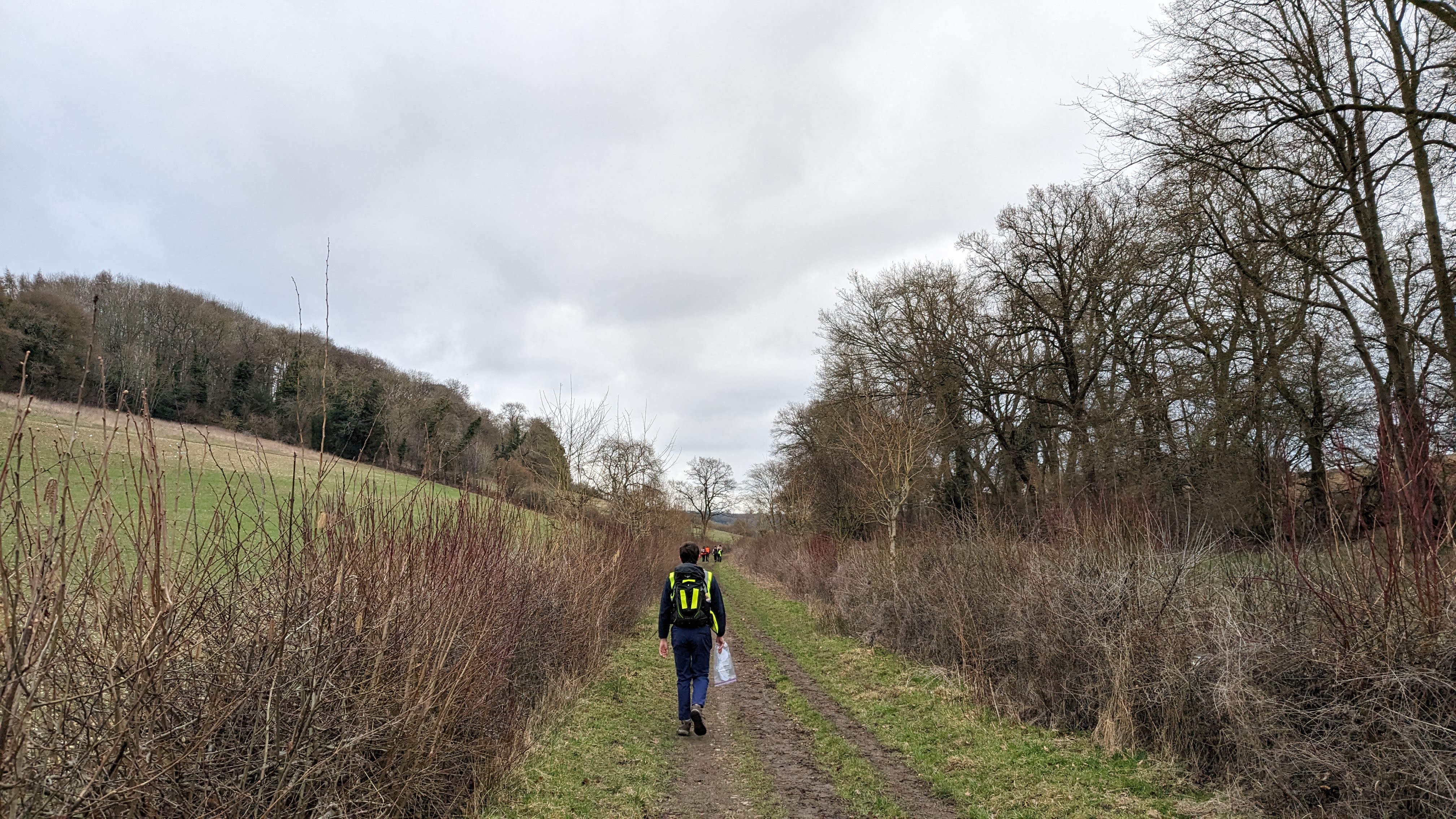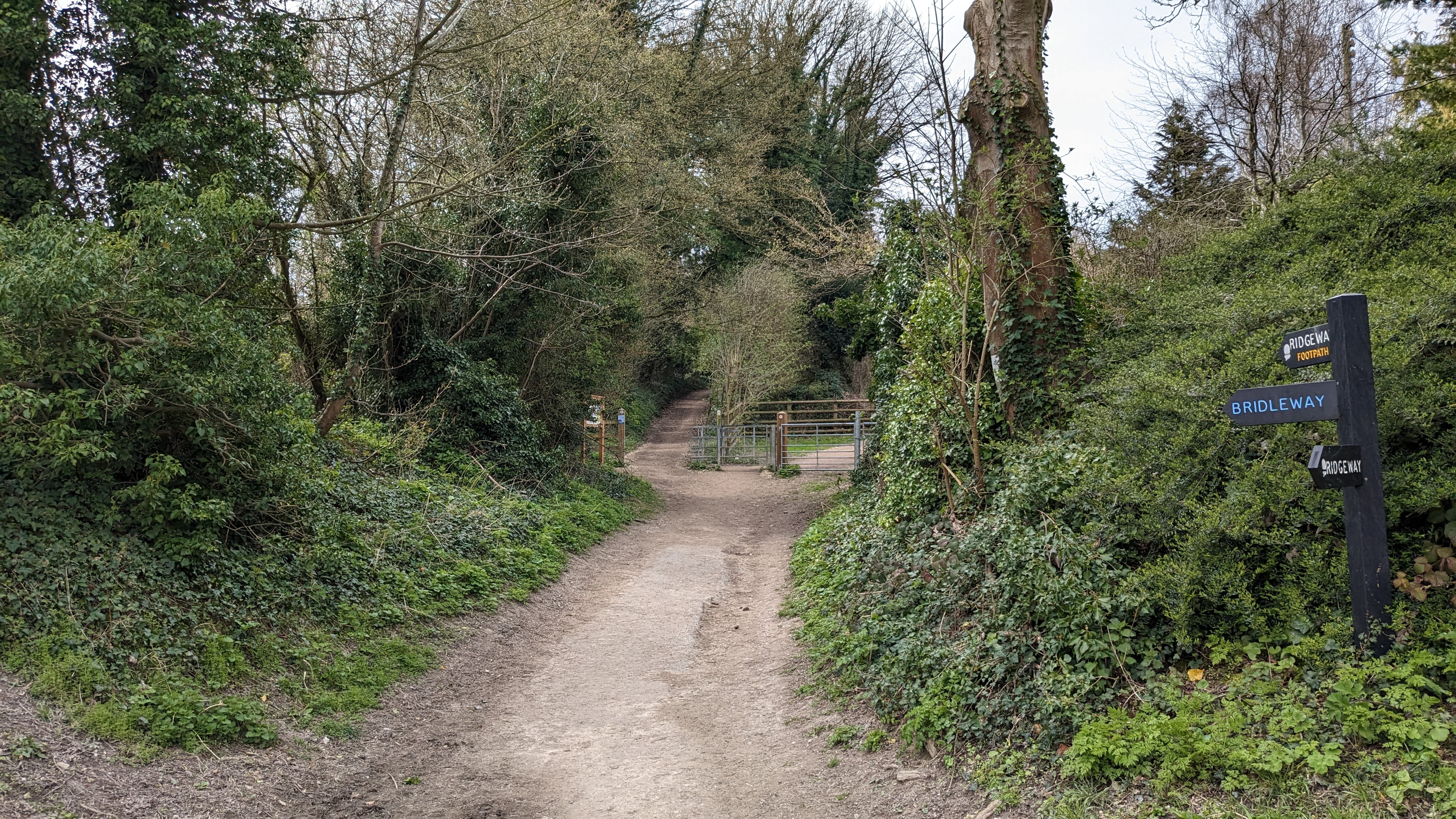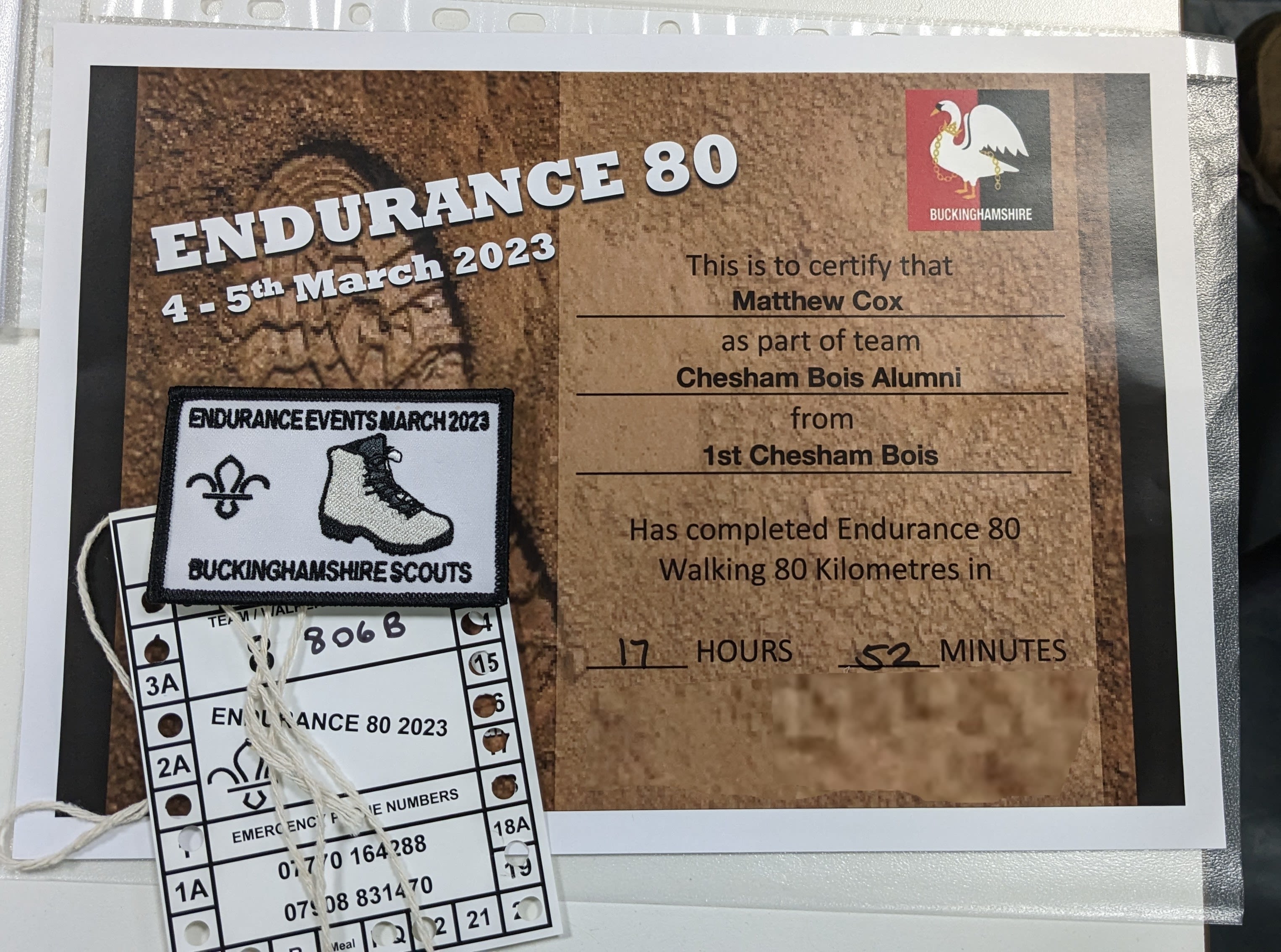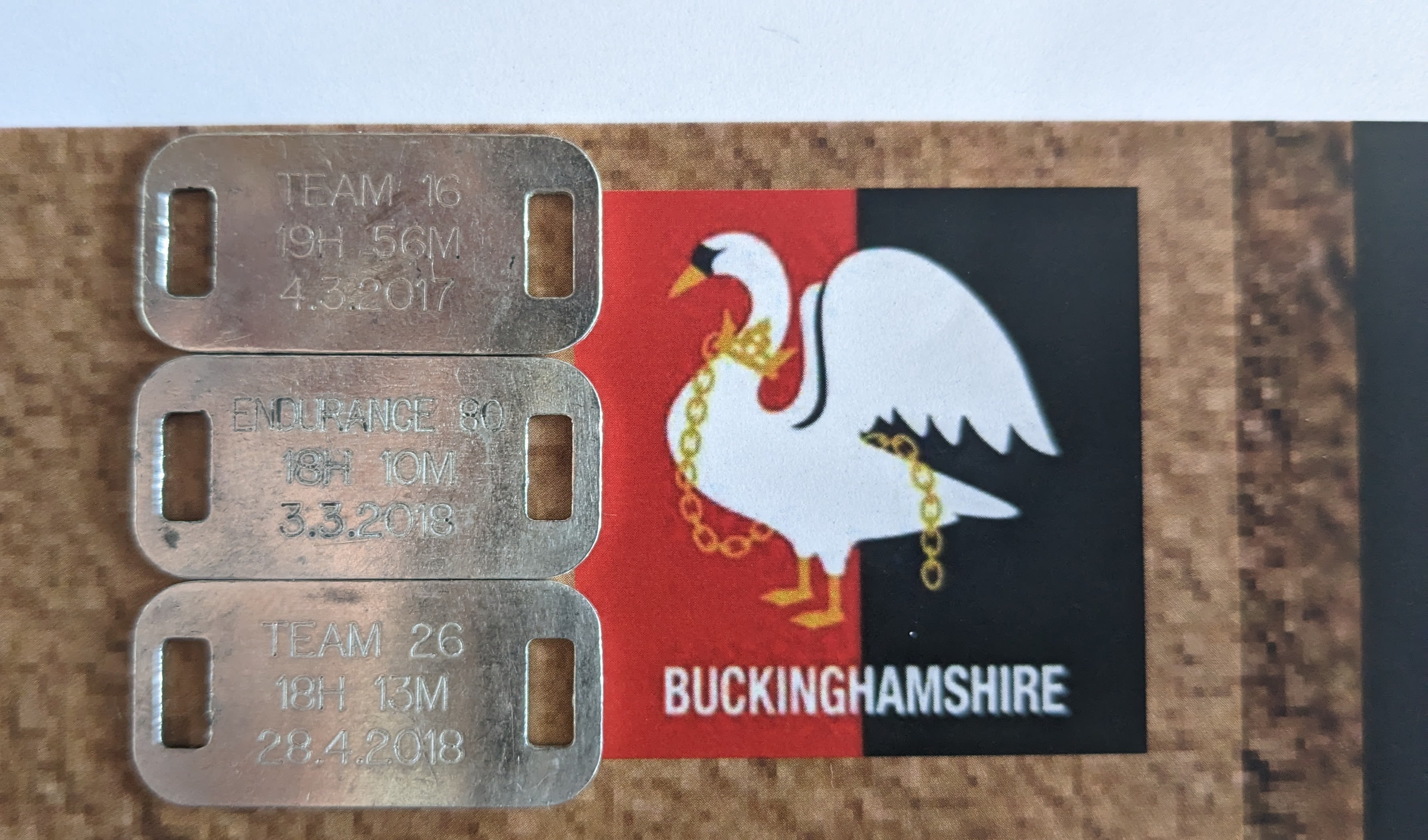Endurance 80
What makes hundreds of scouts walk 80km at once every year?

In March more than 800 scouts took part in endurance events, competing in teams to walk up to 80km across Buckinghamshire in one go.
Endurance 80 is the pinnacle of these events, with Explorer Scouts - 14 to 18 year-olds - and adult leaders aiming to walk 80km, or 50 miles, inside 24 hours.
The event began in 1980, and grew so far and fast that the organisers had to put a 150-team limit on the competition.
After a break between 2001 and 2011, Endurance 80 now runs alongside a 10km event for Cubs (8-10 year-olds), a 40km event for Scouts (10-14 year-olds), and a 60km event exclusively for Explorers.
For members of the 1st Chesham Bois Scout Group (1CB), these events are a right of passage, largely down to the efforts of leader, Andy Honour, 57.
Honour first competed, but dropped out part-way, in 1982, and has not missed a year since.
He said: "One of the strange things that came out of dropping out for me was not that I wanted to do it again, but that I wanted to win, which is a bizarre thing to think of.
"A winning time then was probably 17 hours, you didn’t need to be that fast, but I still wanted to win it.
"It took until 1992 before we actually won, because much like us, other teams got better. The time you needed to win started to drop."
In 1992, his team set a record time which stands to this day: 10 hours 48 minutes.
Now he runs training for those at the scout group, aiming to pass on his unrivalled knowledge of the course.
The route is broken up by 22 checkpoints (marked below) manned by volunteers from local scout groups who provide support and provisions like snacks and water.

Isabella Inga, 21, is the Deputy UK Youth Commissioner, and was at 1CB from Beavers all the way through to Explorers.
She said: "I remember we had a talk from people who had done it, and 80km felt so huge to me.
"I was like: 'I will never do that. I can never imagine doing that'.
"Then I moved up to explorers; the first year I had really bad pneumonia and couldn’t do it. I think that made me want to do it even more.
"I’ve still got no idea how I’ve done it now. I can’t picture 80km, or 50 miles, in my head.
"But when you’re actually walking it, it doesn’t feel as big as it is.
"That’s probably just because of the culture that we’ve been brought up with at our scout group – the fact that it’s something we just do."
Inga has participated five times since 2018, finishing all but one of those - the most recent attempt.
She said: "I wanted to prove to myself and other people that I could finish this year.
"Unfortunately I injured myself so had to pull out, but that makes me want to make sure that I will successfully do it next year."
Inga dropped out after the formidable Coombe Hill section of the course.
It is one of two hills of particular note; this after 36km, and Beacon Hill after 57km.
Inga added: "For me I find the first half of the walk much more difficult than the second. "
Honour thought similarly: "One of the biggest challenges when you're out there is somewhere in the 20–30-mile mark, where you’ve reached a really uncomfortable position and you have to find the patience, courage and persistence to say: 'I can deal with this for ages.'
"In the middle there’s a lot of fear about the position you’re in, there’s a lot to go, and there’s a very loud voice in your head saying: 'Let’s stop here.' That’s when the pressure in your head is biggest.
"Over the years people have looked at me for that encouragement to keep them going, and when you’re trying to encourage people to get to the end, the hardest part is in that middle section."
Another difficulty Honour has witnessed down the years comes before the first step.
He explained: "I think one of the toughest challenges is to make the decision to try.
"A number of scouts are interested but don’t want to take the risk - whether it’s risk of failure, risk of discomfort, risk of hard work.
"So, I’m excited when any of them take the leap and have a go."
Surprisingly perhaps, the end is not where people tend to struggle.
Honour said: "When you get into the last 10 miles you get to a point where you can’t stop, all you’re doing is encouraging someone to take another step, just going a bit further, rather than to not give up."
Inga concurred: "I really like going into the checkpoints towards the end - Saunderton, Redland End, and the top of Beacon Hill.
"It’s such a difficult part of the course and people are so encouraging and excited to see you.
"I get to the point where, yes I’m in pain, yes it’s a bit uncomfortable, and yes it’s weird because it’s the middle of the night and you’re not bumping into people and if you’re the first team on the course you’re not overtaking people.
"But it feels like more of a milestone as you’re going through."
If you are especially unlucky, but simultaneously dedicated, you will not only be walking in the pitch black night, but also as the sun rises in the early morning.
Something like this sounds unthinkable, but can create some of the best memories which define the event for those who do it.
One such instance has made a particularly fond memory for Honour.
He recalled: "In 2014 the under-foot conditions were atrocious, it had been chucking it down with rain for weeks.
"We had a huge number of entrants from 1CB, and I divided them up into teams with different leaders heading them up.
"By the end of the Ridgeway [approximately 57km] all of the leaders had retired and I was left with a huge bunch of young people including my daughter Rosie.
"We lost one more between the top of Beacon Hill and the finish, but we struggled round to the end and 10 of us got home together.
"I was counting people, we’d got so many in this big group, and they just fed off each other’s courage to keep going.
"The sun came up as we were coming back into Great Missenden.
"I felt huge achievement and such pride that all of those youngsters got back together, including my daughter as well.
"She was quite brave to set off and do it because obviously my reputation and expectation is to get to the end so that added weight on her shoulders, so it was brilliant."
Equally, when you finish there is an element of novelty to go with the pride, and bragging rights when you hobble around the days after.
Inga said: "Coming back the week after into whatever I was doing before people would ask: 'What did you do at the weekend?'
"And I’m like: 'Oh, I just walked 80km,' and they can’t understand it.
"But to me it’s just genuinely fun!"
Now, after all the achievements and finishes, Honour sees his role as helping others more than aiming to win the event.
He said: "As I get older, I relish the achievements of our young people more, but still in 2019 we did 12 hours 12 minutes and I felt pretty chipper about that.
"I enjoy the challenge of trying to go fast, but I guess I don’t need to prove to myself that I can go fast any longer so I’m probably more interested now in some other people gaining what I’ve gained from doing the event.
"In particular one of the things it taught me was the value of preparation and training.
"I gained enormous personal self-confidence from it - a belief that if you keep trying you can do whatever it is you want to do, just by playing the long game.
"It’s persistence – which I use in all the things I do - work, scouting, exercise, whatever. I’m always happy to play the long game to get to the finish line.
"I’ve run a number of marathons now and when I was a kid the first London Marathon happened and I remember watching it on TV - this magnificent, fantastic thing.
"I didn’t, at any point, look at it and think I could do it, and having got round Endurance 80 I realised that actually you can do all sorts of things just by sticking at it.
"You don’t need to be that fit, it’s just putting one foot in front of the other. That’s why I hope that our young people will learn something from doing that walk."


